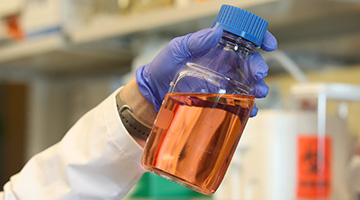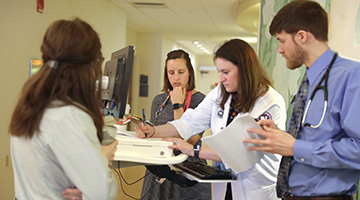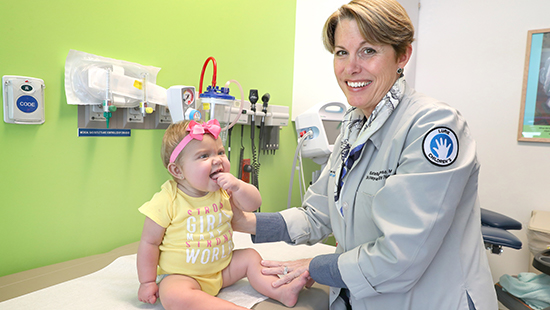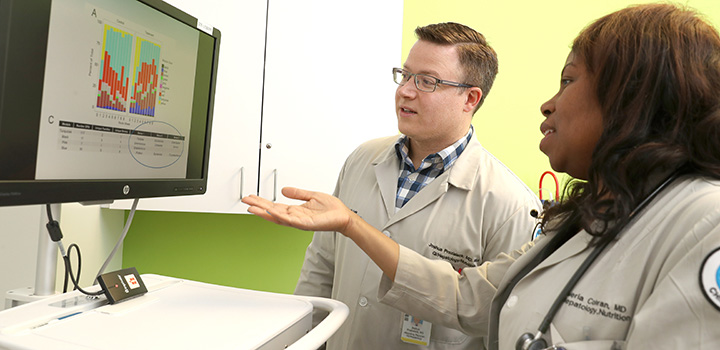Gastroenterology, Hepatology and Nutrition
The Division of Gastroenterology, Hepatology and Nutrition at Northwestern University Feinberg School of Medicine's Department of Pediatrics is dedicated to education, research and the improvement of patient care related to children with a wide array of liver and digestive disorders.
Pediatric patient care is provided through our clinical affiliate, Ann & Robert H. Lurie Children's Hospital of Chicago. At Lurie Children's, division faculty participate in comprehensive, full-service clinical programs that cover all the relevant subspecialty areas of the field.
Our division is committed to advancing the science and understanding of disorders of the GI tract and liver, and improving care for children with wide range of complex conditions. We are proud of the fact that our division is one of the premier clinical training programs in the country."
— Barry K. Wershil, MD
Division Chief, Gastroenterology, Hepatology and Nutrition

What We Do

Research
Three full-time scientists and the majority of our faculty are actively involved in state-of-the-art research to advance our understanding of digestive and liver diseases and develop new therapies for our patients. The Center for Intestinal and Liver Inflammation Research, led by Xiao-di Tan, MD, is a multidisciplinary group of investigators examining the basic immunological and inflammatory mechanisms behind digestive and liver diseases. A wide array of clinical research is also ongoing, looking as such diverse areas as liver transplant outcomes, therapies for IBD and short bowel syndrome, clinical aspects of functional bowel diseases and motility disorders and eosinophilic esophagitis and other allergic conditions of the bowel. View our publications feed.

Education
There are many aspects of gastroenterology and nutrition that are critical components for understanding pediatrics in general. As such, our division is dedicated to creating a learning environment that provides a foundation in these areas for medical students and residents and an in-depth experience for fellows. ACGME-accredited fellowships are available in Pediatric Gastroenterology, Hepatology and Nutrition and Pediatric Transplant Hepatology.

Patient Care
The Division of Gastroenterology, Hepatology and Nutrition at Lurie Children's, ranked 11th in the nation by U.S. News & World Report for Pediatric Gastroenterology and GI Surgery, is comprised of clinical faculty and multidisciplinary healthcare teams made up of nurses, nurse practitioners, fellows, residents, dietitians, clinical psychologists and social workers. The Division of Gastroenterology, Hepatology and Nutrition at Lurie Children's has more than 14,000 patient visits each year and performs approximately 1,500 endoscopic procedures. Comprehensive care is provided through subspecialty programs for children with inflammatory bowel diseases, eosinophilic esophagitis, GI motility disorders, pancreatic diseases, short bowel syndrome, feeding disorders and reflux, and nutritional problems in children with chronic conditions.

